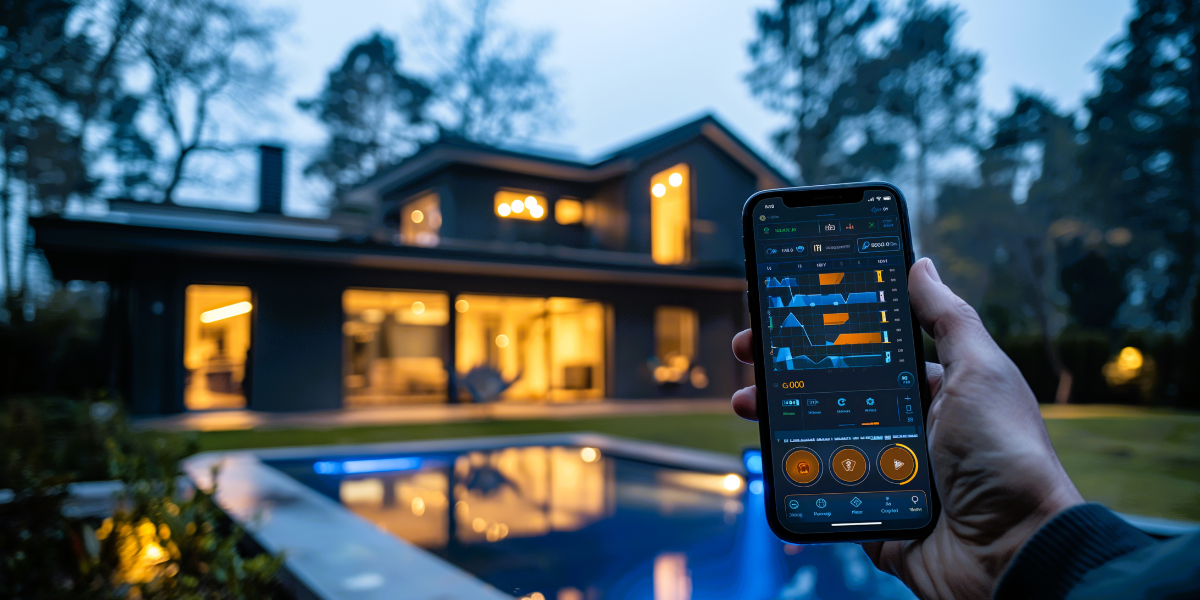Swimming Pool Automation: To Automate or Not to Automate?
So it’s no surprise that swimming pool automation has become increasingly popular among homeowners looking for convenience, efficiency, and control.

In today’s fast-paced, technology-driven world, automation is everywhere—from smart thermostats to robotic vacuum cleaners. So it’s no surprise that swimming pool automation has become increasingly popular among homeowners looking for convenience, efficiency, and control. But like any major upgrade, automating your pool involves an investment of time, money, and consideration. The big question many pool owners face: To automate, or not to automate?
This post will explore the pros and cons of pool automation, the key components involved, and help you decide whether it’s the right choice for your pool lifestyle.
What Is Swimming Pool Automation?
Swimming pool automation refers to the use of technology to remotely control and schedule various functions of your pool system. This may include:
- Pool and spa pumps
- Filtration schedules
- Pool heaters and chillers
- Saltwater chlorinators or chemical feeders
- Pool lights and landscape lighting
- Water features (fountains, waterfalls, bubblers)
- Automatic pool covers
- Cleaning systems (robotic cleaners, in-floor systems)
Modern automation systems allow you to manage these features through a smartphone app, remote control, or smart home integration (such as Alexa or Google Home). You can set timers, adjust settings, or activate features with a simple tap or voice command.
Attention Pool Owners: Have questions, need expert advice, or want a personalized quote? Click the Learn More button below — we're here to help you every step of the way!
The Case For Automation
1. Convenience and Control
Imagine controlling your entire pool from your smartphone—whether you’re in the backyard, on vacation, or at work. Want the spa heated when you get home? Done. Forgot to turn off the pool lights? No problem. Pool automation eliminates the need for daily manual operation and gives you total control at your fingertips.
2. Energy Efficiency and Cost Savings
Automation helps run your equipment on optimized schedules. For instance, running your variable-speed pump during off-peak utility hours or ensuring your heater only runs when needed can significantly reduce energy costs. Many smart systems monitor usage and offer energy-saving suggestions.
3. Improved Water Quality
Automated chemical management systems keep chlorine and pH levels balanced more consistently than manual testing and dosing. This translates to clearer water, fewer algae problems, and a safer swimming environment. It also reduces chemical waste and wear on pool surfaces and equipment.
4. Longer Equipment Lifespan
Because automation can prevent equipment from being overused or misused, your pumps, filters, and heaters may last longer. Scheduled operations reduce the strain on components and allow for more efficient maintenance.
5. Enhanced Lifestyle and Enjoyment
Automation makes it easier to use your pool on your schedule—not the other way around. With programmable lighting, water features, and spa functions, you can create the perfect backyard experience for entertaining or relaxing, all without lifting a finger.
The Case Against Automation
1. Initial Cost
Installing a pool automation system is not cheap. Depending on your setup, it could cost anywhere from $1,500 to over $5,000, including hardware and installation. Upgrading older equipment to be compatible with automation can raise the cost even further.
2. Complexity and Learning Curve
While today’s systems are user-friendly, there’s still a learning curve. Understanding how to properly program your equipment and troubleshoot system issues takes some effort. For some, this defeats the purpose of “convenience.”
3. Maintenance and Repairs
Automation systems, like any technology, can fail. Replacing a malfunctioning controller, sensor, or board can be costly and may require a professional technician. In some cases, software updates or connectivity issues can add frustration.
4. Overkill for Simpler Pools
If your pool setup is basic—a single-speed pump, no water features, no spa—then automation might be more luxury than necessity. In such cases, manual operation might remain the most cost-effective and reliable choice.
Attention Pool Owners: Have questions, need expert advice, or want a personalized quote? Click the Learn More button below — we're here to help you every step of the way!
So, Should You Automate?
Here are some factors to consider when deciding whether to invest in swimming pool automation:
- Pool Complexity: If your pool has multiple features (spa, lights, heater, water features), automation makes managing them far easier.
- Frequency of Use: Regular users will appreciate the convenience of automation more than occasional swimmers.
- Budget: If you’re undergoing a major pool remodel or building new, automation is easier to integrate. For older pools, factor in upgrade costs.
- Lifestyle: Tech-savvy homeowners and those with busy schedules will likely find automation a worthwhile investment.
- Energy Efficiency Goals: If you're trying to cut down on utility bills or operate a greener pool, automation can help get you there.
Conclusion
Swimming pool automation is not just a trendy add-on—it’s a practical tool that can elevate your pool ownership experience. The benefits of convenience, energy efficiency, better water quality, and enhanced enjoyment are compelling. However, it’s not for everyone. Cost, complexity, and maintenance demands should be weighed carefully.
If you’re planning a pool remodel or building a new pool, consider integrating automation into your design from the start. For existing pool owners, evaluate how automation might simplify your pool care and enhance your lifestyle.
To automate, or not to automate? The answer depends on your needs, habits, and how you want to enjoy your backyard oasis.
